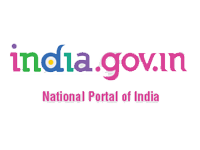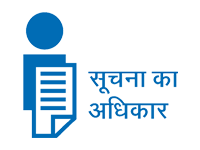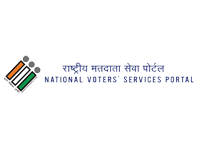About Us
Social and human sciences research enhances our understanding of the social reality and the issues and problems that need to be solved. The actionable outcomes of research provide policy inputs and frameworks for socio-economic and all-round development and generate ideas, facts, insights and methodologies that can be used in policy framing, teaching and research.
India has had a long, cumulative and rich tradition of thought production in social and human sciences since the Rigveda (1500 BCE). The intellectual tradition since Panini has reflected on the social and cultural meaning and evolved epistemologies of enquiry for the attainment knowledge based on observation, logical and rational thinking. Educational and research institutions such as Takshashila, Nalanda, Vikramashila, Vallabhi, Pushpagiri and Somapura flourished as global centres of learning in different parts of India, and produced great knowledge in diverse fields such as Ayurveda, Medicine and Surgery, Jurisprudence, Mathematics, Astronomy, Physics, Metallurgy, Civil Engineering, Architecture, Philosophy, Grammar, Agriculture, Economics, Commerce, Politics, Statecraft, Military Education, Literature, Craft etc. These institutions set very high standards of teaching, learning and research for scholars from across the world. This system of Indian education produced scholars of great stature such as Aryabhatta, Bhaskaracharya, Amarsimha, Chandrabardai, Banbhatta, Dandin, Jivaka Komarabhacca, Mahaviracharya, Charaka, Susruta, Baudhayan, Chanakya, Brahmagupta, Panini, Patanjali, Nagarjuna, Pingala, Gargi, Kanad, Varahamihira, Thiruvalluvar, Tolkappiyar and so on.
After Independence, Bharat sought to regain its indigenous model of social and human sciences research that required decolonization of the education and research. As the country’s development process threw up numerous and diverse challenges that required extensive research and analysis, the Government of India established a Committee for Social Science Research under the Chairmanship of Professor V.K.R.V. Rao in 1965 to review the social science research scenario in the country and make recommendations to accelerate its progress. This led to the establishment of the Indian Council of Social Science Research (ICSSR) in 1969 to encourage, promote and fund social science research in the country. Since its inception, ICSSR has played a pivotal roles in building the capacities of early career and senior researchers through grants and projects as well as training in research methodologies with the objective to produce high-quality research usable for policy intervention and policy making. It has also made immense contribution to humanities and cultural research as way to decolonise the formations of self and society across the length and breadth of the nation.
It has been recognised that the need of the hour is to shift from merely documenting the 'exceptionalism' of India to engaging with the diverse social realities of the country with a philosophical stance of inwardness, so as to be able to develop an original and fresh understanding of a larger variety of issues, generate new theories and perspectives and represent the multiple voices of varied people of India.
In the 21st century, when the nation aims to become a Viksit Bharat by its centenary year of Independence, 2047, ICSSR seeks to establish a symmetry between social research and society. In line with the recommendation of the National Education Policy (2020), we seek make social research equitable, affordable, inclusive, socially sensitive and globally competitive.
We are an autonomous body under the Ministry of Education, Government of India and a premier organisation with 24 Research Institutes (grant-in-aid), 17 Recognised Research Institutes and Six Regional Centres located in different parts of the country.
Mandate
The ICSSR’s aims and objectives, as detailed in our Memorandum of Association (MoA), are the following:
- To review and survey the progress of Social Science Research and advise the Government on policy issues;
- To fund and promote Social Science Research in Universities/Colleges/Research Institutes;
- To award Doctoral, Post–Doctoral, Senior and National Fellowships to researchers and faculties;
- To award Minor, Major and Collaborative Research Projects to researchers and faculties;
- To fund National and International Seminars and Conferences to disseminate social science research findings;
- To support Training and Capacity Building Programmes for young researchers and faculties;
- To provide International Travel and Data Collection Grants to scholars and faculties;
- To encourage International Collaboration in social science research with well recognized foreign research funding agencies;
- To fund the publication of journals and books in social science research and also strengthen professional social science associations/organizations;
- To provide library, documentation, data and online services for social science research; and
- To indicate periodic themes in neglected and new critical areas of research.
Organisational Structure
The ICSSR’s highest decision-making body, known as the Council, has 26 members, which includes the ICSSR Chairman and the Member-Secretary, 17 Social Scientists (Non-Ex-Officio members), one Co-opted member and six Ex-officio members representing the Government of India.
The Member Secretary is the Chief Executive Officer and heads the ICSSR Secretariat consisting of Directors, Deputy Directors, Assistant Directors and other officials. The ICSSR’s officials, apart from their normal official duties, make regular contributions through research papers, articles, articles in edited books, journals etc., and have also delivered lectures during the reporting year.
The Council has three standing committees, namely the Research Committee (RC), Research Institutes Committee (RIC) and Planning and Administration Committee (PAC).





